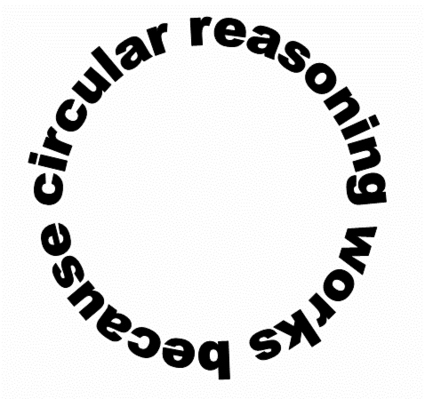I get bothered in my own discussions or arguments with people when I think I'm being misrepresented in their responses to me. Which a decent chunk of the time is going to be because I communicated poorly, but I do wish people would assume the best instead of the worst.

Because this bothers me, I try to assume the best of people I discuss with... but I'm not very good at it yet.
I get bothered in discussions not directly involving me by arguments that seek to silence rather than discuss. Some examples:
Someone should create an Argumentative-Techniques-Bingo.gif
The bingo cards approach bothers me. Line up all the arguments you think your opponent(s) might use and mock them ahead of time. Then if someone shows up using that argument, you get to point back to your preemptive mocking and go "lol called it." It's a fine way to make sure you get to enjoy the argument and belittle anyone who argues with you, but it's not a good way of discussing things. I understand why this happens, but it's still not great.
Related, it especially bothers me when the arguments so mocked are legit positions people might hold, that are being called out because oftentimes people who hold shitty positions retreat to those legit ones rather than argue for what they actually believe. Like, remember that Duck Dynasty guy getting in trouble for homophobic remarks? Someone who's a homophobe and wanted to defend him might retreat to arguing about free speech, rather than trying to actually defend the comments. So then it's tempting to assume everyone who argues about free speech in that context is actually just a homophobe, which has the unfortunate effect of making it really difficult to have an actual potentially interesting discussion about free speech. (Yes, I have seen the xkcd comic.

) Or actually, for a less potentially fraught example, see "let's wait for all the facts, guys!" in threads about somebody being a victim of racism. An unquestionably reasonable and legitimate position, but one that's used a lot in that context by people who don't want to admit they just don't think xyz is racist, or possibly don't even believe structural racism exists, which makes it much harder for actual reasonable people to say we should wait for all the facts even though it's a reasonable thing to say.
On GAF, there's also the classic move of trying to bait someone into a ban, which is no fun. If someone comes into a thread and argues something like free speech, and someone else suspects they might be a homophobe, they start poking and probing and trying to get the poster to admit to having a problem with gay people, and ultimately get them banned. It's easier to poke at them and bait them than engage them. Again, silencing rather than discussing.
As I said above, I get why all these happen. It's tedious to hear the same arguments over and over, the same deflections and retreats-to-legit-positions, and it's tiring to have to respond to them individually instead of just saying "fuck it" and rounding off to the nearest racist. But doing that too much, rounding off instead of responding, silencing instead of discussing, makes honest discourse really difficult. This might not matter to some folks, who might reason that in some cases, "honest discourse" just isn't necessary. I think I understand that position as well. But, well. I like open discourse with reasonable moderation, and I feel like I see possible ongoing meta-spirals of shutting down various avenues of discussion, and it kind of makes me sad.
Man, I'm not even sure where all that came from.

